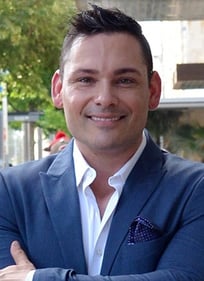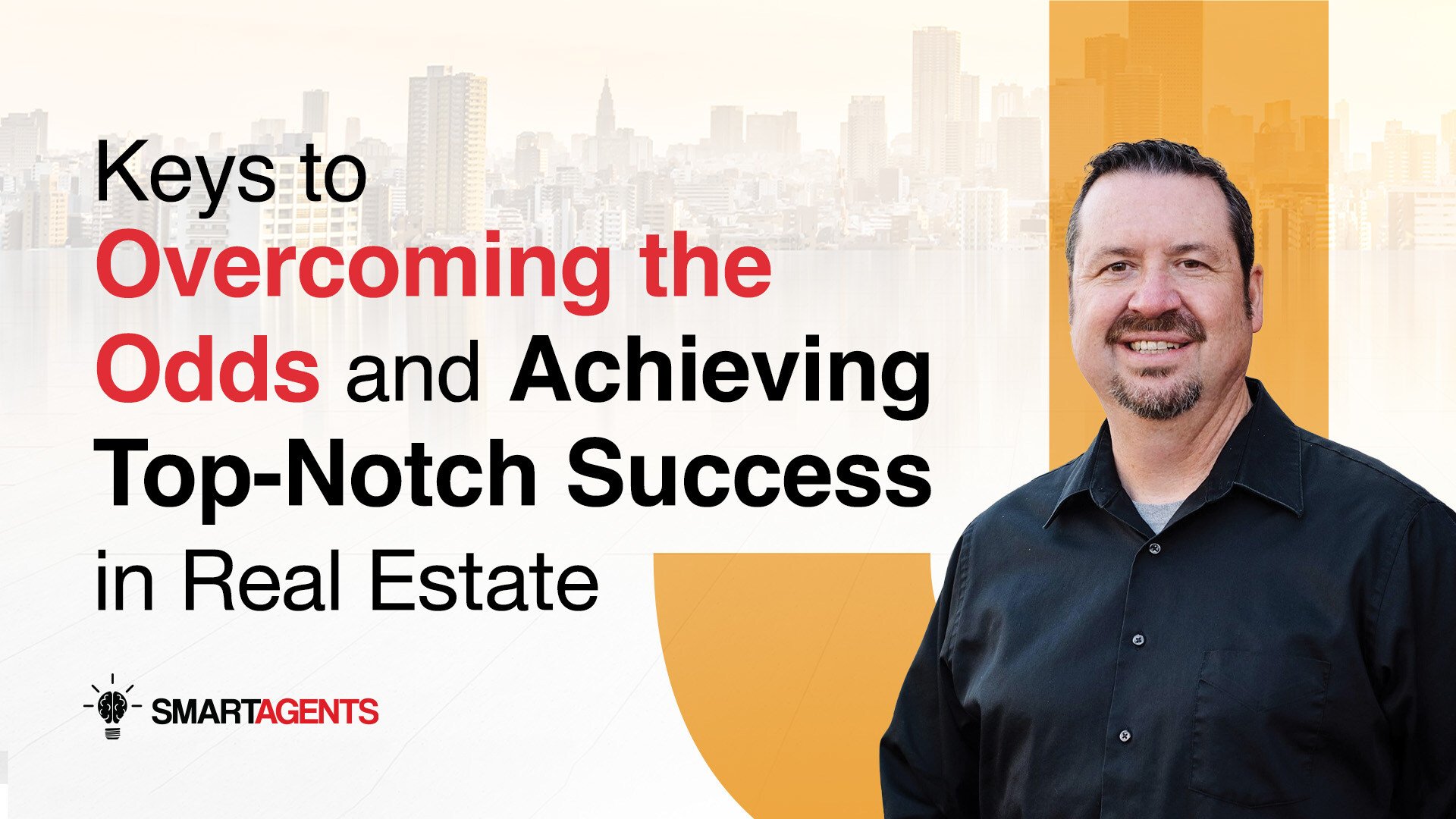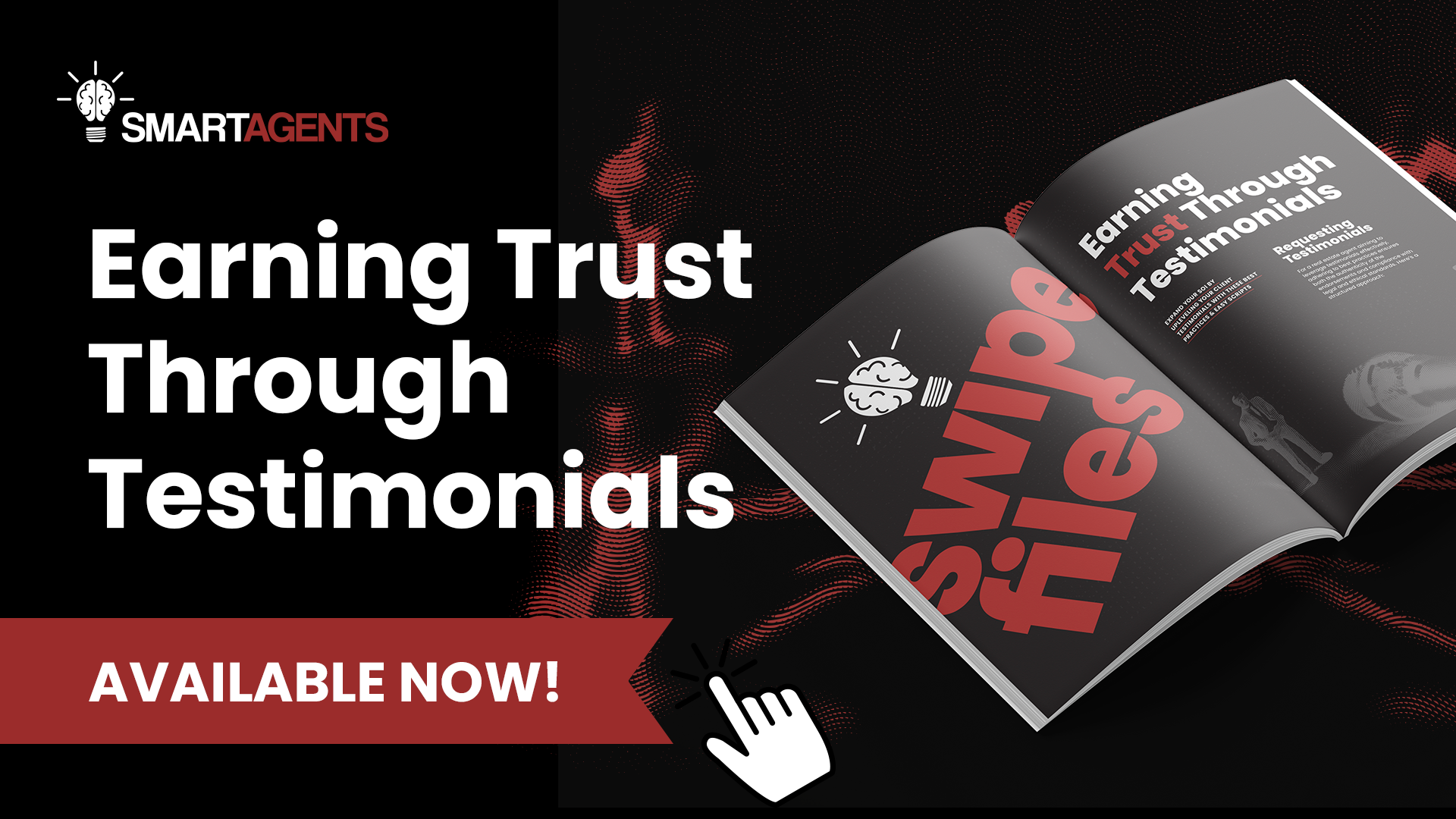“You have to reevaluate why you're doing this business. If you don't reevaluate why you're doing this, you're in the wrong business — any business.”
That’s the attitude David Smith is taking to pull his Houston brokerage through the coronavirus pandemic.

As a 16-year real estate veteran, he is taking this time to evaluate what he’s been doing and what he can do to adapt and grow in the future.
“It's going to force people to do things different,” David says. “I think it's in a way allowing people to understand and think about the process that they're doing when they do an open house, or it's forcing technology to evolve our business a little bit more.”
For David and his team, adapting means putting a greater emphasis on the client experience.
A Silver Lining in Dark Times
Being stuck inside has given David an incentive to build a greater rapport with his current and potential clients. He believes now is the best time for agents to prove their value.
“Agents have been seen as a commodity, you know, and we're really going off of now, ‘Hey, um, I might need an agent to really go through this process with me.’”
David says that during this time, people are viewing agents more as a necessity than a luxury. People need guidance more than ever to successfully sell their homes in the current market.
He also believes that this period will separate dedicated agents from those who are just going through the motions.
“You don't have the typical — what I call average agent — going out there and showing anymore. Now you’ve got more of — it's weeding out the process,” David says.
“All it is, is making the agents think through their process, build a better process, build a better experience. Majority of this business is going to evolve. ...It's going to do away with the weaker agents, the agents that are just going out there and saying, ‘Hey, I got my license. I was only told that I need to put it on MLS and now we’re just going to sell it.’
“Either an agent can take this information and think that they're a victim of the situation and the circumstances. I've sold more properties probably within this month over last year's month.
“And that's what really what this is all about is, yes we have major changes, but this is going to force the average agent to reassess: Is this the right industry for them?
“And it's going to force the adapted agent or the agent that's the above average agent — it's going to force them to think about finding their process and refining their process and making it a better client experience. Because that's what the client really wants. And we've been talking about that for years, but nobody is — I mean a lot of the average agents don't — they don't implement the process.”
Transparency over Empty Promises
David believes now is the time to ask tough questions and really understand his clients’ unique needs.
“We are changing a chapter in somebody's life,” David says. “So we need to understand if you have two identical houses and you're selling two identical houses identically, but one's financial situation is different, or their family life is different. ...You don't know, maybe this person's going through a divorce. Maybe this person can't make the next payment like the other person can and carry the property for ... the market average of 30, 60 days. We don't know. You have to ask deeper questions. You need to become unscary about asking tough questions upfront before you take the offer.”
David prefers to take a transparent approach to real estate — even if it isn’t always what people want to hear. He tells them the percentage of homes that fail to sell and why they fail to sell. This helps him set realistic prices for the homes he lists and actually sell them.
“At the end of the day, let's ask this, analyze why are you doing this? Right? If this property fails to sell, what is your plan B? And if you ask that powerful question, most people, it stops them. And if it gets them to say, ‘Hey, I don't have a plan B — you are my plan B.’ And so that kind of gets the client sometimes out of their own head and out of their own way to be able to make this house sell.”
He says this approach helps his clients respect him, and he believes with such a major transaction on the line, people should trust the person they choose to sell their home.
“We need to be seen as attorneys and lawyers or doctors or any notable position in our business — not a used car salesman. Because that's not where we are, right? But that's what the public has perceived agents to be. But I've saved my clients tens of thousands of dollars and I know other agents, not just myself, that have done the same thing and gone through the same processes.”
He says the emergence of discount brokers has also undercut the value real estate agents bring to the table. But the coronavirus has given him time to reflect and focus on gaining respect from his potential clients.
Adapting to the Coronavirus Market
“I've been through this coronavirus — I just had a baby. … My wife had the baby about a week ago,” David says. “So every day that I go out, I'm thinking, OK, do I need to go out? What's going to bring more money to me? Do I need to jump in a car and go to a house or do I need to plan out and talk to the client a little deeper and say, ‘Hey, look, due to this coronavirus, I don't want to put you in jeopardy, my health or me in jeopardy. But what I do want to do is make sure we can get you from planning it from point A to point B in the least amount of time and without, the least amount of process.’”
David says that besides the obvious ways the coronavirus has changed his real estate business — forcing him to rely more heavily on technology and work from home — it’s also allowed him to focus on how to reach clients most effectively.
“How has this affected my business and how has it affected other agents that I know is business? In a way, it's got them to sit down and really take a very good look at the first part of their business, which is the introduction of the client. How do I want to communicate information to a client? Do I want to do it by phone? Do I want to do it by Zoom? Do I want to do it by any type of video chat? Technically, I think that if we can understand that we are here to help people and that's the first and foremost — and the public needs to understand this too.”
He says keeping person to person interaction at the forefront of his business, even when a lot of it has gone virtual, is how he plans to continue doing business now and in the future. He focuses on really understanding what his potential clients need.
“‘Hi David, I'm here to help you sort through this real estate situation. What do you need? What do you want? What are you looking for?’ And you start going through like a doctor does, like a doctor goes through an intake sheet and you ask the basic information, where are you looking for? What kind of situation? But then you ask the deeper questions once you warm up. That's the most important thing is to ask the deeper questions. ‘OK, where are you going? Where do you want to be? … When do you need to be there?’ And what you need to do is start getting in a routine to ask these questions where it just comes off your head.”
Once David gathers the information, he repeats it back to them to show them that he was listening and understood their wants and needs.
To better serve their clients, David and his team plan to put together a video series of topics to educate buyers and sellers through each step of their real estate transaction. He hopes that doing so will answer some of the questions he hears on a regular basis and shows people he knows what he’s doing. He also plans to lean on expert advice to communicate to his clients.
“I'm starting to put together my own podcast where I put on experts and stuff,” he says. “We do the same thing you're doing and we put it, we transcribe it, we put it out, but we're also sending it to our clients, putting blogs together, doing those things.
“I was reading a Facebook ad this morning — it was just a little ad — but it said the biggest, the most precious resource in the world is not oil anymore. It's information.”
David believes there is no better time than now for agents to be proactive about their businesses and make positive changes.
“Think about what you might be able to put in place a little proactively this time,” he says. “That's all this quarantine’s done is it allowed agents not to, is to slow down. And if they really had that ‘aha’ moment, they've slowed down and they've said, ‘You know what, how can I fix my business? How can I work on my business — not in my business?
The potential for growth doesn’t just stop with real estate, David believes.
“I think not even just real estate agents, but just everywhere in life. Everybody has the time to kind of sit back and kind of excel out of however long this lasts. It's about reevaluating and knowing, OK, what steps, what things can I change about what was going on two months ago and how can I move forward and what really had been important to me?
“The biggest thing is having a plan of action and actually just fulfilling it.”
Prioritizing Client Safety
For his current clients, David is taking extra measures to ensure their safety.
“Usually, we always showed up 10, 15 minutes early, turn on the lights, open all the windows, turn all the blinds, you know, make sure that the clients, you're ready to see the house. Now it's, we're adding gloves, booties, antiseptic wipes, dish soap. ...It's actually in a way kind of helped a little bit more because now you don't have a client just going in and walking through the house and walking out. Now, you have a reason to say, to talk to them and get to build a little bit more rapport.”
He is also taking extra care to pre-qualify any buyers who want to view his listings or that he’s working with so he isn’t putting himself or his clients at risk unnecessarily.
“That's another thing that we've been really adamant doing and it weeds out our time. It weeds out the clients. It increases the volume of clients. It lets them know that ‘Hey, you just can't go see a house and expect to just go see a whole bunch of houses and take agents for granted,” David says. “I always tell my clients and say, ‘Look, I love to show you every house that you want to see. Let's go ahead and get you prepared to be able to see these houses. Because if you do see the houses in this market, you want to be able to take action. If you don't have your pre-qualification letter with your lender, you don't have some processes in play to take action, then you're going to lose this house.’”
Making the Tough Choices
David prefers to work with clients he knows he can help and who are a good fit for him and his business.
“Maybe I'm not the right fit for you. Maybe emotionally. But it's a good thing for agents,” David says. “Understand you have the right to make a choice, right? It's not that you have to take every deal that swings to you, right? I've had some clients, believe me, and everybody, I guarantee we can have a whole segment on clients that don't fit and we still hold because we're invested, right? But at the end of the day, it's really now thinking, ‘OK, what kind of quality of client I want?’
“Like you've probably heard hundreds of times. If you're getting a client and they're not forthcoming to explain stuff to you, how can you help them? And you're not going to be able to really master what you can do. Now we can find houses. They're online all day. Anybody can search houses with no access to the houses, calling the agent before you get to the house. We should instead of driving all the way to the house and all of a sudden you get a message on your phone, ‘House is off the market’ and that happens. But you need to express to clients that it's about getting your ducks in a row quickly and then finding what you're looking for.”
The Game of Real Estate
As the leader of a team of agents, David is focused on guiding his agents through this market and into the future.
David compares successful real estate prospecting to a game of baseball, with each base serving as a different step in the process. This is how he explains the process to the agents in his brokerage.
First Base: Let people know you’re there.
“The first deal that you have to do is you have to get first base. So how do you get to first base? ...Getting to first base is the equivalent of getting people to know that you're there ... and then getting people to like you. ...That means they're going to give — you got five minutes, 10 minutes, whatever your presentation is, is to get people to listen to you.
Second Base: Show that you’re an expert.
“Second base is to demonstrate that you're an expert. ...You don't have to show graphs, you don't have to shoot charts, you just have to speak strong enough about what their current situation is. That's asking questions. That's in the interview process when you initially talk to that person. So when you can relate their information to their situation, you become an expert.
Third Base: Ask for their business.
“It's just to ask for the business, not be scared about asking for the business. And once you ask for the business, the probability of you doing these two little two minor things over here, the prep work, the probability is very high.”
Home: Land the deal.
“Not every baseball player, even the best ones, never hit all home runs,” David says.
Most of the time, it’s about following a process and eventually bringing people to home plate.
“I've talked to many brand new agents and just, just in the first 10, 15 minutes of me talking, sometimes they were like, I never heard that. I never knew that. I didn't know that perception. I didn't know that real estate was like that. And over 16 years, I've acquired a little information. I'm not saying I'm the best. ... I will kneel down to agents and people far better than I am. I've learned a lot from listening to them, and I've learned just my personal experiences. But now I have to be a little smarter. I've got two beautiful little girls. I've got a wonderful wife. It really comes down to wanting to spend more time with them.”







